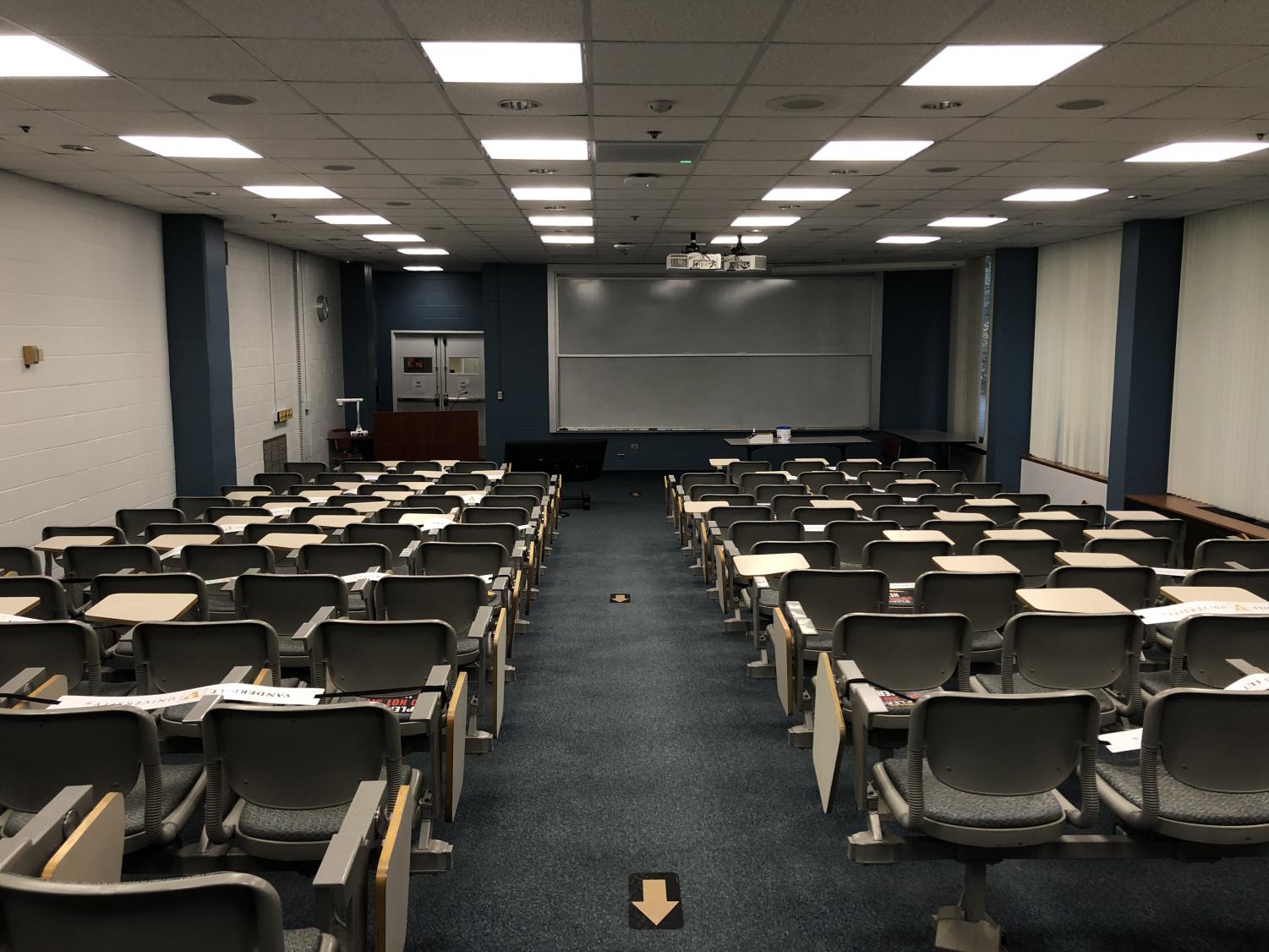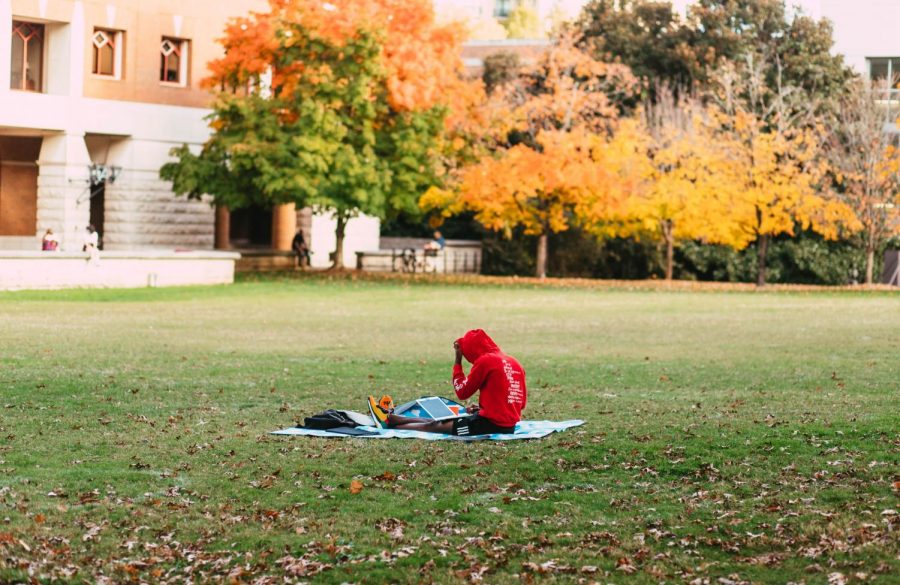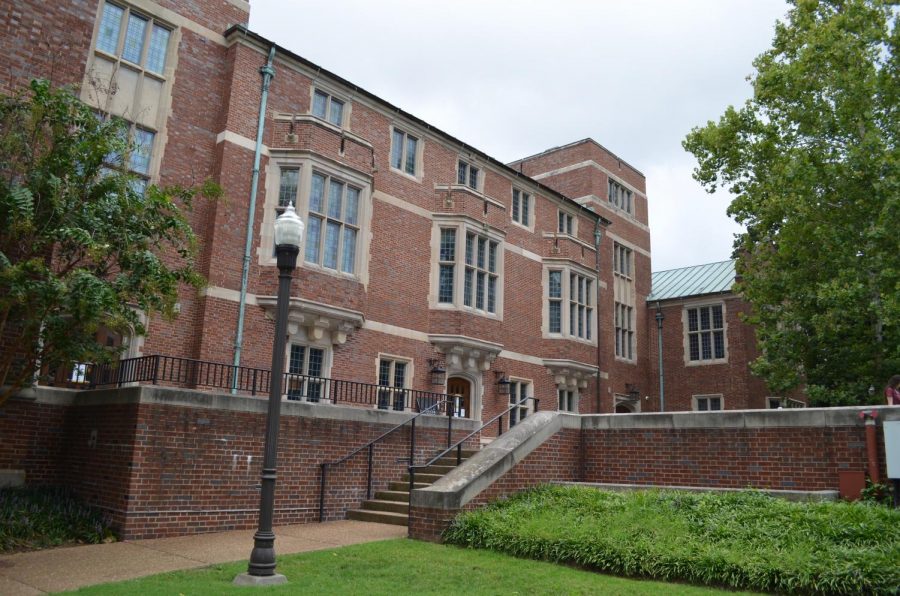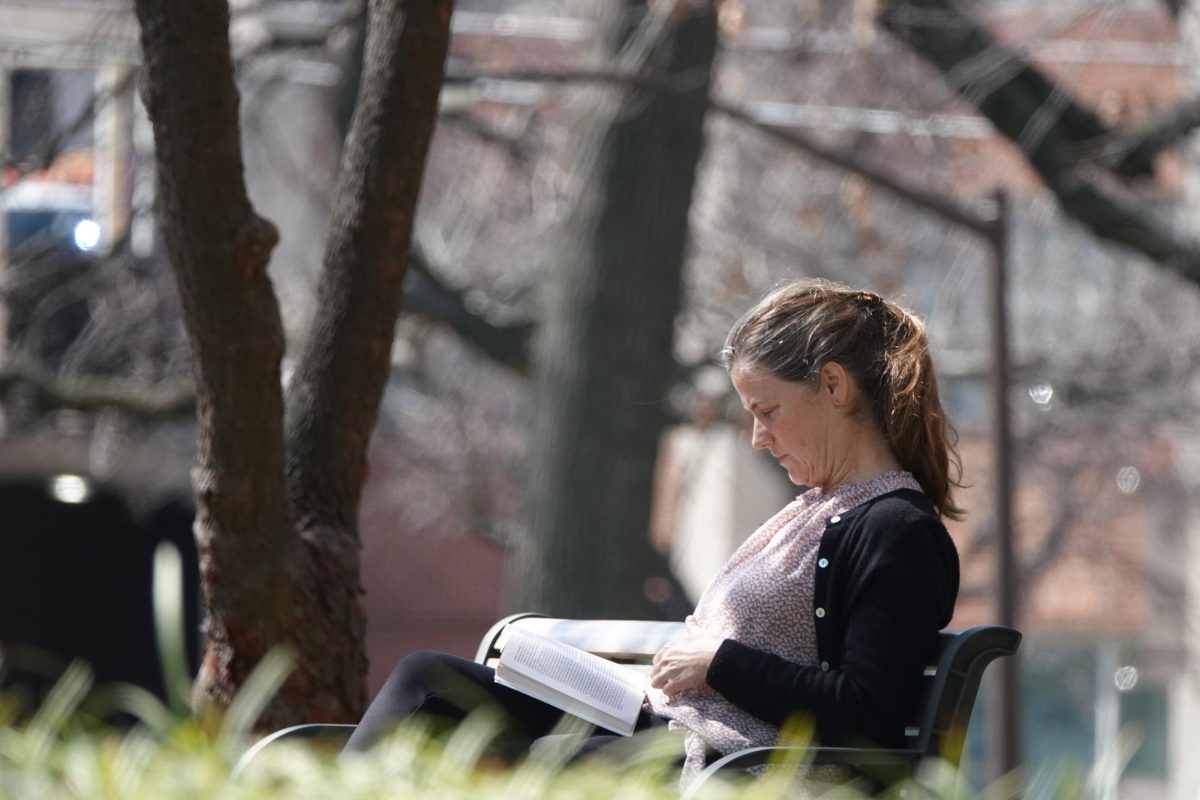As students headed into the fall, they expected a semester like no other, as the previous spring semester foreshadowed the stressful remote learning-era ahead. Fall 2020 would yield little student support, a stark difference from the prior online semester. Workloads would be suffocating, and pass/fail grading deadlines would not be extended to accommodate student wellness during a pandemic that has exacerbated financial and familial insecurities. In short, academic standards would adhere to traditional ones during a non-traditional school year.
When Vanderbilt announced its plans to reopen during the summer, it was clear that their new mission was to restore normalcy during the pandemic. Vanderbilt began by proudly hosting all willing students back on campus, a move many universities were hesitant to make. Their determination was present—weekly COVID-19 testing, social distancing and mask guidelines would ensure that we would not see the same fate as, say, the University of Notre Dame, which shifted from in-person to fully-online learning after a mere week.
The beginning of the semester soon started, revealing a school year far different from previous ones. Despite Vanderbilt’s best efforts, the educational experience overwhelmed students. Many screen-based curricula promoted Zoom fatigue and burnout, as they forced students like me to spend 12 to 16 hours online daily. Thus, their pursuit for a normal semester was doomed to fail, as they could not simulate near-normal learning conditions with semi to fully-online classes. Of course, some classes still stressed traditional interpersonal connection with classmates and instructors even through a screen, thereby succeeding in delivering a Vanderbilt-worthy education. Nevertheless, the overall learning experience left much to desire. Unfortunately, students would soon discover that the administration hoped to pursue a traditional learning experience no matter the cost, leaving many stunned by the end of the semester.
A November 4 survey of over 2,300 undergraduates conducted by the Vanderbilt Student Government (VSG) should shock anyone—69 percent of students reported mental health issues and 94.5 percent preferred some pass-fail grading system this semester. Students were struggling.
Some students were hopeful that Vanderbilt would announce an extension of the pass/fail grading deadline after Thanksgiving break like its peer institutions did. A recent Hustler report revealed that the VSG’s efforts were unsuccessful, with deans of the undergraduate colleges refusing to endorse their demands. The decision was soon criticized by the VSG and other students, who were shocked by the administration’s claims that the proposal went against student interests.
Vanderbilt’s decision to isolate itself from its peer institutions that have extended pass/fail deadlines have aligned with the administration’s aims for this semester—they want to uphold the traditional, in-person experience at all costs. Hence, they are willing to pass measures that degrade student wellness if they can increase the likelihood of Vanderbilt remaining in-person. For instance, the elimination of Fall Break forced students to traverse all but the last week of school without a break. In this case, the lack of breaks hoped to disincentivize travel at the expense of free time students desperately needed if they were to uphold Vanderbilt’s rigorous academic standards.
Though in-person learning may prove more effective than remote learning, the sacrifice of student wellness by failing to provide proper accommodations, like pass/fail grading extensions, to maintain the former learning experience will hinder its efficacy.
No amount of interpersonal connection can compensate for the mental health struggles students have faced and the lack of student support from the administration, which has set us up for failure.
The measures taken in the previous remote spring semester were surely daunting to Vanderbilt’s academics standards. As educators worked with students to provide an equitable, high-quality education in a time where financial and familial insecurities demanded attention, they were compelled to be lenient. Grade inflation became a concern for some, as they may have found it even harder to fail students who went through significant hardship. Even cheating became easier, as students had access to multiple devices during exams. These consequences, coupled with pass/fail grading extensions, may have incentivized students to slack off, as a mere C would ensure a pass.
Such accommodations may have compromised the rigorous education Vanderbilt wished to provide in the spring, persuading the administration to find ways to restore their academic standards. Regardless, this is no excuse to blindly reject learning accommodations. Unforeseen circumstances are ruling students’ lives, forcing us to carefully ration the time spent learning and tending to our livelihoods. However, we still want to complete our education promptly. To ensure that all students have equal opportunities for academic success and a timely graduation during these times, Vanderbilt must modestly decrease academic standards and shamelessly embrace necessary accommodations to uphold a fair, high-quality education in these times.
Vanderbilt has taken its pursuit for a traditional semester too far. Their actions have imposed unnecessary stress on many students already dealing with other pandemic-related issues. Their sole focus on keeping infection rates low has revealed the gross negligence of its student body. After all, their most visceral messages sent throughout the fall semester were in response to student congregations and increasing infection rates. Few emails, if any, addressed student satisfaction levels and the state of academics adequately.
Rather than support its students, Vanderbilt appeared to use us as pawns this semester to forward their mission to be one of the only schools in America that would sustain in-person learning during the pandemic.
The administration must quickly rethink its plans for the next semester if it wishes to continue restoring normalcy. Vanderbilt does not need to worry about its academic standards dropping if it provides accommodations like pass/fail grading extensions. Its highly qualified professors, lecturers and TAs will prescribe curricula to meet desired learning outcomes. Furthermore, the self-selected, high achieving students found throughout Vanderbilt will aim for success regardless of the teaching/grading model. Instead, the administration must direct its focus towards providing student support.
Unfortunately, recent announcements have proven that they are on a misguided path. Traditional reading days—weekdays free of classes, usually put in place in preparation for term exams—have been soiled by Vanderbilt’s solutions: weekend and in-class reading days. Finals were especially stressful this semester, as weekend reading days allotted less study time. Next semester, Vanderbilt will strip us of more study time through in-class reading days, regular class days without extracurricular activities. The Spring Break cancellation will ensure that we will not have any days off, foreshadowing an even more stressful semester than the fall.
In a recent Hustler article, the ad hoc committee that managed the spring 2021 plans argued that regional accreditation would be in jeopardy if they removed even one class day, as the move would put them under the 15-week semester threshold. Still, assistant provost Olivia Kew-Fickus noted that Vanderbilt was unlikely to lose accreditation over such a minute issue. However, Vanderbilt may be stripped of some unknown privileges due to “scrutiny,” per Kew-Fickus.
The solution is clear—extend the semester to compensate for days lost from breaks. Graduation plans for the class of 2020 and 2021 would be jeopardized by such actions, states Vanessa Beasley, vice provost for academic affairs. However, one must question why graduation plans are not as fluid as the bounds of the spring semester, which have shifted in accordance with expected COVID-19 surges. Cementing graduation plans creates unnecessary restrictions to the 15-week semester, which must progress soundly before graduation ceremonies can occur. There is no reason why an event that will not occur for another six months is less fluid than the bounds of the semester, especially when the spring semester’s success will determine that of the graduation ceremonies.
Vanderbilt has not learned from its mistakes this semester and is on track to repeat them. The administration is unwilling to listen to students in formal settings, as even the shocking student satisfaction data presented by the VSG was insufficient evidence for change. Now more than ever, student organization is necessary to ensure that schools meet our needs. Privileged students should find inspiration from tuition strikes organized by students at Columbia-Barnard, which has gained notoriety for its radical approach to democratizing administrative power, and lead similar movements here. Efforts like these were successful at the University of Chicago, where students were granted tuition freezes in response to the financial hardships many faced during the early stages of the pandemic. We must learn from Vanderbilt’s misguided actions and demand control of our educational journey before Vanderbilt continues with another dreary semester.









